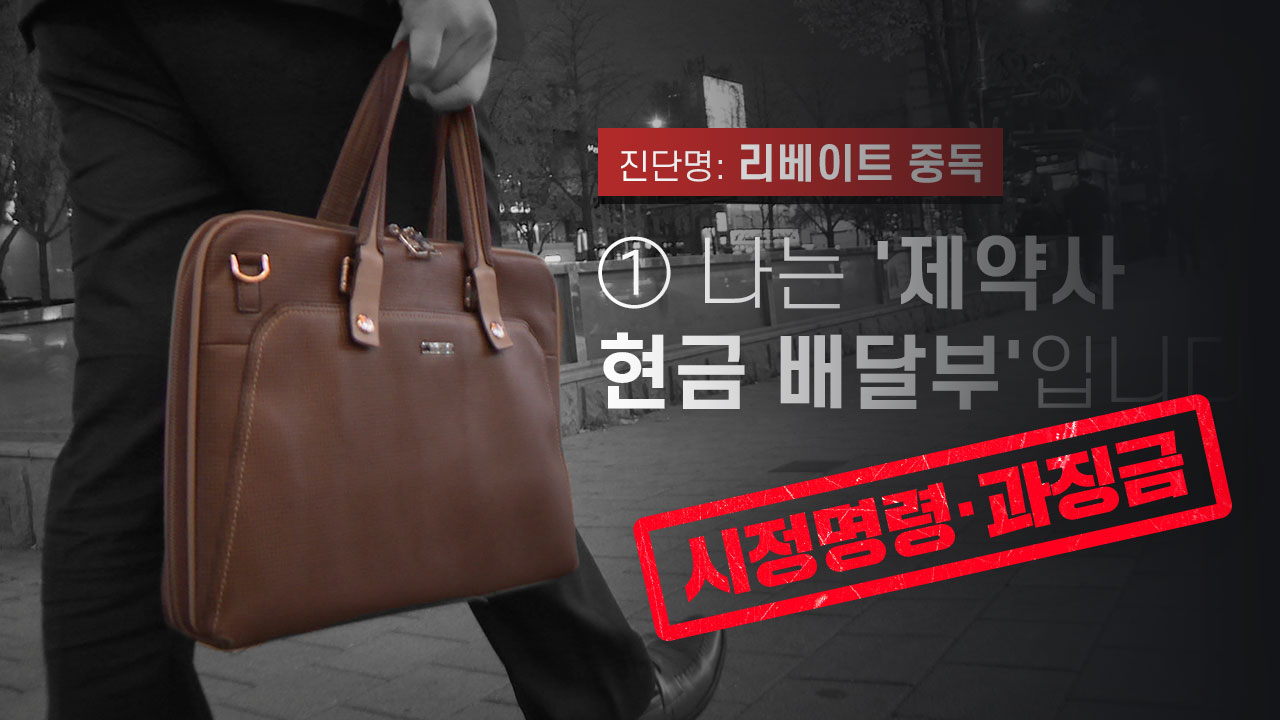
Drugmaker in the series ‘Final Diagnosis: Kickback Addiction Disorder’ sanctioned by KFTC after 3 years
Oct. 13, 2023
Korea Center for Investigative Journalism(KCIJ)-Newstapa is launching ‘The Vaccine Project: Medicine, Pharma and Money Project,’ which diagnoses the national medical system, the pharmaceutical industry, and the government’s monitoring and supervision functions on them.
Healthcare services and drugs are directly related to the lives and property of the people. But as the Invossa scandal showed, the collusion of medicine, moneyl and power is deepening and the public nature of healthcare is often disregarded. Such trend has stemmed from the health sector, which has been dominated by capital and industrial logic in recent years.
KCIJ will ‘inject vaccines’ to ensure that the national medical system and pharma industry maintain their value as public good and remain sustainable, and that the government supervise them properly. The Vaccine Project will be continued for the next three years.
As its first series, KCIJ reports local pharma companies’ illegal kickback sales practices over three days starting December 18, 2019.
If you’re familiar with the industry or healthcare system, send your tips or leaks to vaccine@newstapa.org. - Editor’s Note
Inist Bio Pharmaceutical, a drugmaker whose illegal kickback sales practices were revealed by Korea Center for Investigative Journalism(KCIJ)-Newstapa investigation, was found to have planned out the new year’s kickback payment ratio and announced it to its sales staffs in secret.
KCIJ reported earlier that Inist had gave out kickback ranging from 20 to 40 percent of the month’s prescription sales to doctors for three years since 2016.

In a written statement, the company officially denied the kickback suspicion.
"Our executives has never ordered or managed illegal business practices," the company said in a written statement. “We hold regular compliance training sessions for the sales department, and do our best to prevent and eradicate any illegal business practices.”
However, KCIJ found that the company has made moves that are contrary to its official statement.
Since last week, the company hosted their so-called ‘training sessions’ and called in all sales representatives to announce the new year’s kickback-related budget and give-out ratios.
The sessions were held in secret. Salesperson based in Seoul and greater Seoul area attended at the session held at the Inist headquarters in Yongin, Gyeonggi-do Province, on Dec. 16, 2019, while those staffs working in the rest of the nation were gathered at each region’s branch office from Dec. 11 to 13.
The company adjusts the kickback policy ratio every year, and the new number goes in effect since the first day of each year. This year, the company has been offering an average of 20 percent of monthly prescription sales.
According to Mr. A, the whistleblower, who was also notified of the new year’s kickback ratio, Inist decided to pay an average of 17 percent of its kickback budget in 2020. The higher the prescription performance, the higher the kickback payment ratio.
If the client clinic's prescription sales turns out less than 10 million KRW (approximately USD 8,244) for the month, the company officially offers a kickback worth 6 percent of the amount. The company offers 26.5 percent kickback for those clinics that makes prescription worth more than 50 million KRW a month.
Inist executives also announced that it will reduce its kickback budget, which aims to maintain existing clients, but instead expand budget for the so-called ‘pre-payment,’ a different type of kickback which a drugmaker offers six month to a year worth kickback at a lump sum in an effort to attract new doctors.

The kickback budget first lands on each sales representative’s secret bank accounts, which he or she manages separately from paycheck accounts. Every month, the sales staff withdraws the money in cash and delivers it in an envelope to each client doctor.
According to one of Inist sales staffs, the Director of Sales Planning surnamed Choi arranged the new year’s kickback ratio and got the ratio finally approved by the company’s executives and CEO.
Mr. Choi explained that the main purpose of calling in all sales representatives at the end of the year was to discuss business plan for the following year and to do compliance training at an interview with KCIJ.
“Spending made by salespeople is reasonable cost as sales promotion,” Choi said, emphasizing that his sales staffs don’t offer kickback to doctors.
Inist Bio Pharmaceutical’s illegal kickback-based sales practices were reported to the Anti-Corruption & Civil Rights Commission. Illegal kickback for medical products is a crime that violates the Pharmaceutical Affairs Act, Medical Services Act and the Fair Trade Act, as well as the Fair Competition Agreement, which was voluntarily established and enforced by the pharma industry.
Inist’s moves to destroy evidences were found after KCIJ’s first story was published. Mr. A, the whistleblower has already lost access to the company's internal email network and sales record management system. After his report to the company's illegal sales activities to the anti-corruption commission, the case is now transferred to the Fair Trade Commission and the police. The authorities' prompt investigation efforts is urgent.
Reporting by Wooram Hong, Jiyoon Kim
Video by Sang-chan Lee, Joon-sik Oh, Hyung-seok Choi, Young-cheol Shin
Video Edited by Jisung Jung
CG by Dong-woo Jung
Design by Do-hyeon Lee
KCIJ-Newstapa does not accept any advertisement or commercial sponsorship. Individual citizen's voluntary support sustains Korea’s only independent investigative newsroom. You can join our 'Defenders of the Truth' now.